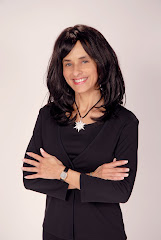 Ten things we have learnt about Africa
Ten things we have learnt about Africa The Pew Research Center has just released one of the biggest ever studies on attitudes to religion and morality in Africa, which has revealed a host of interesting facts.
Here are 10 things we have learnt from the study, which surveyed 25,000 people in 19 countries.
1. 75% of South Africans think polygamy is "morally wrong" - bad news for their president, as Jacob Zuma took his third wife earlier this year and is engaged to a fourth. However, the survey also revealed some possible double-standards. While only 7% of Rwandans approved of polygamy (although this did include women), a rather higher number - 17% - of men said they had more than one wife.
2. An overwhelming majority of respondents disapproved of homosexual behavior. In three countries - Zambia, Kenya and Cameroon - this was a massive 98%. Interestingly, one of the countries with the highest numbers of people - 11% - accepting homosexuals is Uganda, where an MP is trying to get legislation passed which would punish homosexual acts with life in prison and even death in some cases. The former Portuguese colonies of Guinea-Bissau and Mozambique were also relatively tolerant of homosexuality.
3. Africa is probably the world's most religious continent, with more than 80% saying they believed in God in most countries. At least half of the Christians questioned expect Jesus Christ to return to earth during their lifetimes. In Ethiopia, 74% of Christians say they have experienced or witnessed the devil or evil spirits being driven out of a person and in Ghana, 40% of Christians say they have had a direct revelation from God. About half of all Muslims expect to see the reunification of the Islamic world under a single ruler, or caliph, in their lifetimes.
4. Zimbabwe, where the Lemba people say they are the lost tribe of Israel, was not one of the countries surveyed. But 26% of Nigerian Christians said they traced their origins back to Israel or Palestine.
5. Belief in witchcraft is also common - about 40%; a similar percentage also visits traditional healers to cure sickness. Belief in witchcraft is highest in Tanzania with 93% - this is the country where witchdoctors say that magic potions are more effective if they contain body parts of people with albinism. Ethiopia had the lowest levels of belief in witchcraft - at just 17%. Belief that juju or sacred objects can prevent bad things happening was generally lower - between 20 and 30%. In Senegal, however, 75% thought such things worked - far higher than in Tanzania (49%). It may come as a surprise to learn that South Africa had the highest number of people - 52% - saying they took part in ceremonies of traditional religions, or honored or celebrated their ancestors.
6. Predictably, there was also a religious split concerning alcohol, banned by Islam. Surprisingly, however, more Muslims in Chad (23%) approved of booze, than Ethiopian Christians (5%). This comes as a huge surprise to Ethiopia experts, however, who point out that it is traditional to welcome Orthodox Christian clergy with traditional honey beer when they visit your house. Maybe "alcohol" was only taken to mean spirits by some of the respondents?
7. Attitudes to divorce showed a strong divide along religious lines in Nigeria. A massive 79% of Christians thought it was "morally wrong", while among Muslims, a narrow majority (46-41%) accepted divorce.
8. In recent years, Islamist hardliners in Somalia and Nigeria have introduced strict punishment based on Sharia law, such as amputating the hands of thieves and even stoning to death for adultery. The majority of people disapproved of such Sharia punishments. In Nigeria, they were backed by about 40% of Muslims and less than 10% of Christians. However, a majority did approve of whippings and amputations in Senegal and Mali. In nearby Guinea-Bissau, even 50% of Christians backed them. This was double the rate among Muslims in Ethiopia (25%) - maybe it feels like a more realistic prospect to them, as they share a border with Somalia and most Muslim Ethiopians are ethnic Somalis.
The blending of religions like Islam and Christianity with African religions is one way of ensuring survival of traditional religions
9. The survey also asked about material well-being in the world's poorest continent. Not so long ago, Cameroon regularly topped surveys of champagne consumption per head. However, a shocking 71% of Cameroonians surveyed said there were times in the past year when they did not have enough money to buy food. In Ethiopia, which is commonly seen as a country struggling to feed itself, the rate was far lower - at 30% - the lowest of all countries surveyed.
10. Ethiopia did, however, have the lowest numbers of people - 7% - who said they regularly used the internet. Rwanda's President Paul Kagame is striving to turn his country into Africa's answer to Silicon Valley and is being helped by the arrival of several new fiber optic cables off the east coast of Africa. He will be encouraged by the finding that 30% of his countrymen - the highest number - regularly browsed the web. Mobile phones were far more common - with 81% of respondents in Botswana owning one. Many countries reported more than 50% having phones but here, Rwanda lagged behind at just 35%.










.jpg)
.jpg)



